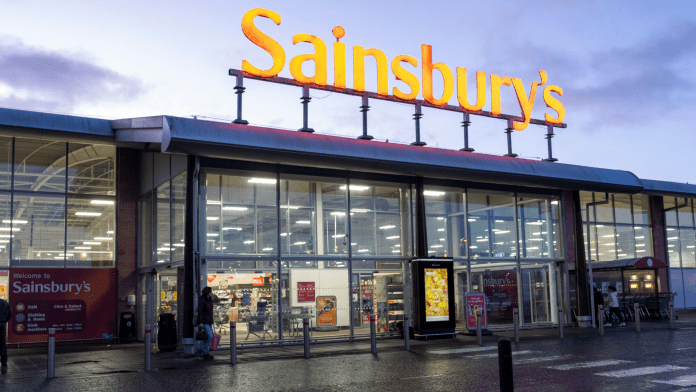Sainsbury’s, the second-largest supermarket group in Britain, announced on Tuesday that food inflation was on the decline, thanks to a resurgence in volume growth. This positive trend contributed to a substantial 9.8% increase in underlying sales for the quarter.
Maintaining its position with a 15% share of the British grocery market, the group also reaffirmed its projections for the 2023-24 fiscal year. Sainsbury’s expects an underlying pre-tax profit between 640 and 700 million pounds ($812-$888 million), compared to the 690 million pounds achieved in 2022-23.
During the first quarter of the year, spanning 16 weeks up to June 24, trading conditions were heavily influenced by significant inflation. This inflationary pressure has emerged as a significant political concern in Britain, as it surpasses wage growth amid rising interest rates. Consequently, households are experiencing financial strain as their budgets come under pressure.
Based on the latest official data, food and drink inflation stood at 18.3% in May. However, according to the most recent industry data, this inflation rate decreased to 14.6% in June.
“Food inflation is starting to fall and we are fully committed to passing on savings to our customers,” Sainsbury’s CEO Simon Roberts said, pointing to 60 million pounds in lower prices since March.
“Prices on our top 100 selling products are now lower than they were in March, against a market where prices have gone up,” he said.
In the quarter, grocery sales experienced a notable 11.0% increase, while general merchandise sales saw a modest growth of 4.0%. On the other hand, there was a decline of 3.7% in clothing sales.
Sainsbury’s faces the challenge of striking a balance between the rising costs of products from suppliers and retaining customers who might be tempted to switch to discount retailers like Aldi and Lidl.
To counter the competition and retain customers, Sainsbury’s is implementing several strategies. It is now price matching hundreds of items with Aldi, ensuring competitive pricing. Additionally, the supermarket is leveraging its Nectar loyalty scheme as a way to provide added value and incentivize customer loyalty.
In the previous month, Tesco, the leading market player, announced a significant 9% increase in underlying UK sales for the first quarter. Moreover, Tesco stated that food inflation had reached its peak.
In recent times, all major grocers in Britain have implemented price reductions on various essential products.
Trade unions and certain politicians have accused supermarkets of engaging in profiteering by allegedly being slow to pass on the declines in global commodity prices to consumers. However, supermarkets refute these allegations and deny any wrongdoing.
High inflation is posing challenges for governments across Europe. In recent developments, the French government successfully obtained a commitment from 75 prominent food companies to reduce prices on numerous products. Similarly, the Hungarian government has taken measures by implementing mandatory price reductions.
While the UK government has raised concerns about the surge in food prices it says it is not considering imposing price caps.





